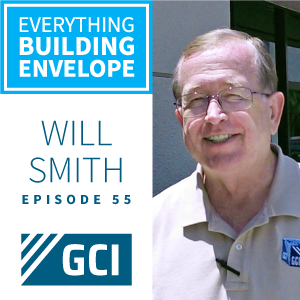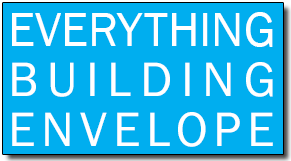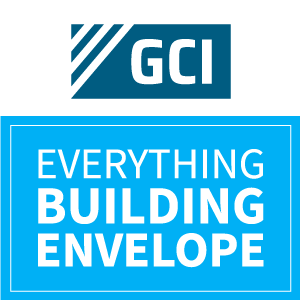
About The Everything Building Envelope Podcast: Everything Building Envelope℠ is a dedicated podcast and video forum for understanding the building envelope. Our podcast series discusses current trends and issues that contractors, developers and building owners have to deal with related to pre and post construction. Our series touches on various topics related to water infiltration, litigation and construction methods related to the building envelope.
https://www.everythingbuildingenvelope.com
*** Subscribe to the show and leave us a Review on ITunes!
Chris: Welcome, everyone, to our “Everything Building Envelope” podcast. I’m your host today Chris Matthews, VP and a principal consultant for GCI Consultants. I’m really excited today to have as our guest, Will Smith, the president of GCI. Will is not one to toot his own horn, but he has been the mentor to a lot of us at GCI through the years. And he’s hosted this podcast a few times in the past, but I’m looking forward to having him in the interviewee’s chair and give us some of his wisdom. We’re going to be talking today about, “Is Your Litigation Expert Really an Expert?” Welcome, Will.
Will: Thank you, Chris. I’m glad to be here.
Chris: All right, so first, let’s get right into this. So, talking about the expert and what he or she brings to the table, what do you think as far as education versus experience, the trade-off there, what are your thoughts on that, Will?
Will: Well, it really depends entirely upon what type of discipline you’re looking at. And I’ve seen many attorneys who seem to be fixated on the degrees, you know. And it is very helpful sometimes to have somebody with a lot of initials behind their name with a Ph.D. and whatever, but sometimes that is not all that valuable. For example, I was in a trial not too terribly long ago, where the opposing expert was a Ph.D. and an engineer. He was a professional engineer, but his education, and his Ph.D., and all, dealt with electrical. And the particular issue involved in this case was water leakage in building walls, so it’s a little bit of a stretch of his expertise. And I think that was received poorly by the jury. When they look at that, and there’s really question on his background and his experience, and it comes out that when it really comes down to the details of this particular case, he does not have the experience. He has the initials behind his name, but not the experience.
I’ve been with some attorneys who have told me, “Look, well, we don’t care about the initials. What we look for is a person who’s got the understanding of the issues that are involved here.” And in fact, I had one attorney tell me a few years ago that he would much prefer to see, for example, a roofer with 30 years of experience doing roofing than some engineer or a doctor who’s textbook educated and has really no practical experience. So, the level of education, I’m not going to dismiss it as saying that it’s not important. It does have some value, but in choosing an expert, you got to really match the expertise, whether it be in education or whether it be in practical experience to the conditions and to the matters that are going to be involved in that particular case.
Chris: And I was telling someone the other day along the same lines too. I think, in addition to that experience versus the letters, it’s also relatability to the jury. Ultimately, if this thing goes to trial, can you talk to them? And in some of these seminars, were Ph.D.s putting on information about the thing that I specialize in the Building Envelope and I’m having a hard time understanding what he’s trying to tell us and imagining if this was a jury, who may know nothing about this, this is just not gonna come across well to them. They’re not going to understand what he’s trying to explain to them.
Will: Yeah, it seems to me that one of the more important things, particularly in testimony, is to be able to make the jury want to hear what you have to say. If you come off very professorial, sometimes that just doesn’t sell. I’m not saying it’s automatically bad, but you need to make the jury understand the issues in the case. And if you talk down to them, if you preach to them, sometimes that just doesn’t go over.
Chris: Sure, sure. Well, and along those lines, similar, it would be the generalist who may have a lot of letters and book learning versus a specialist. Like everything, our industry has so many little specialties within it and within our field, that that’san important distinction, I think, as well when someone’s looking at an expert.
Will: Yes, so true. I’m gonna show my age here, but I remember when I was a kid, when I went to the doctor, that was a dud, you know, it was like Marcus Welby, M.D.
Chris: Right, right.
Will: He handled it all. But now, you just can’t do that anymore. Even if to your main provider of medical care, he sends you off to specialists to analyze individual problems or specific issues. And that’s neither right nor wrong necessarily, but the same thing has happened in the construction industry. It’s one thing, for example, an architect. An architect is a generalist. An architect draws up a set of plans, but when you look at those plans carefully, you’ll see that they have subcontracted certain parts of the design to various specialists in construction, like landscapers, electrical experts, plumbing experts. They have all different specialties that they sub these things out to, and then, the architect puts it all together and makes a plan.
In the forensic world or in litigation, in construction, we’re the same way. We have specific issues that come up. For example, an expert, a professional engineer or a civil engineer with a PE might do very good on a number of different issues, but there are some that require some specialty training and knowledge that they just don’t have. In our particular industry, we do a lot of work, for example, in windows and doors. Well, the typical, not all, but the typical PE, who has got his training, did not have training in windows and doors. That doesn’t mean that they’re incapable. That means they just don’t have a full understanding and grasp of all the issues that can come about, and they may end up having to learn the issues on a job rather than provide answers on a job.
Chris: Right, yep. And your doctor analogy hit home with me. I had an accident recently, and I had to see an orthopedic doctor about a hand and a shoulder. And even within orthopedics, I assumed I’m going to go to the doctor and he or she’s going to take care of me. Well, no, if it’s a hand, you have to go to the hand orthopedic, and if it’s a shoulder, you have to go to the shoulder orthopedic. And it’s kind of the same thing in our industry, in that, you know, someone who may know a lot about below-grade foundation waterproofing, as you said, may not know a whole lot about windows and doors.
Will: Exactly. And vice versa.
Chris: So you gotta have the right person, right? And vice versa, right. But it’s important for someone, an attorney, going out to hire an expert to understand what is in dispute in the case and what expertise they need to bring to that.
Will: Exactly. Very true. Exactly right.
Chris: So, along those lines, once someone is retained, and there is a forensic investigation or a litigation investigation going on, I know you have a lot of experience with this as to employing a proven methodology in the process, having that apply properly to what’s being assessed. Can you talk some about that?
Will: Yeah, and understand that, at GCI, we do work sometimes for plaintiffs and sometimes for defendants. And frankly, sometimes your investigation has to be directed according to whether you are working for a plaintiff or a defendant. And the reason I say that is remember that the burden of proof is on the plaintiff. So, let’s take the example that we talked about earlier. Let’s say there’s an allegation that’s been brought forward by a plaintiff, the owner of a building who’s saying they got a water leakage problem, and they’ve hired GCI to go out there and analyze this problem. If it’s in litigation, we need to prove our case. We can’t go out there matter of factly, and say, “Well, we see water, so therefore, it’s leaking. We see water on the inside, therefore, it’s leaking.” Instead, there are certain processes you need to go through, because it’s the investigator’s obligation to determine not just the fact of whether or not it’s leaking, but why is it leaking, the cause of the leaks. For example, if it’s leaking, it could be just something as simple as the owner failed to maintain the building. And for him to then bring a lawsuit against a bunch of defendants would…you know, that’d be something that we would not be able to stand behind and prove his case for him if he’s failed on his side to maintain the building.
Conversely, if we do an analysis and do testing and forensic examinations and invasive examinations and find that the cause of the leak is because of some defect in material installation or defect in material production, it’s up to us to identify which one of those causes or which defect is allowing the leakage to occur so that we can, therefore, stand in front of a jury and say, “It’s not just leaking, but here’s why it’s leaking, and this is the party that has the responsibility.”
On the other hand, the flip side of that is, what if we’re working for a defendant in a case? One of the first things I always tell my clients is that when we go out and we investigate if you’re in defense of a particular client, and if we go out and investigate and find that the leakage is caused by something they did, they may not like to hear what I’m going to say, but they’re going to hear it. We’re not going to hold back, we’re going to tell them. And it’s not unusual for that to occur, and when it does, a lot of times those defendants will say, “Okay, we’re going to settle this thing. We’re going to take care of this,” and it never goes any further, it doesn’t go to trial, it gets settled out.
But on the other hand, there are plenty of times when I’ve been defending a manufacturer or a product installer or a contractor and it’s alleged that they did something. They either put it in wrong or they made it wrong, made a product wrong. But the plaintiff’s allegation is, like I said earlier, very vague and all it tells you is they sprayed water on it, and they got water coming down on the inside. If you even go and press them and say, you know, “Well, what’s the cause?” They really can’t give you an answer. Well, in that case, I’m going to defend my client and say, “If it’s a window or a door, but it could be the sealant around the opening, it could be the waterproofing of the opening, the flashing of the opening.” There’s a myriad of other possible sources of water leakage, and the plaintiff hasn’t proven what the cause is, so why should my client just throw up their hands and say, “Okay, you know, you got me?” They haven’t got you. You know, it’s up to them to do it.
So, what I want to do on a defensive posture is assure that the plaintiff’scase is proven, that the plaintiff has proven their case, that is. And when, you know, I’m working for the plaintiff, I want to be the one that does the proving. The way you do that is you need to do a methodical investigation that includes…it’s a multi-step process that includes a review of the construction documents, inspection of the building, investigation of the history of the project, that is, not just the history of construction, but the history of weather events of the project. Then, you’re going to get into doing actual testing, depending upon what the allegation is. It could be, for example, water testing for a roof. It could be uplift testing. It depends on what type of products you’re looking at. Then, do an analysis to determine the cause of the problem, then compare that causation to the evidence that you found during your inspection. For example, if I found leakage at the bottom of a wall on the interior of the building but during my testing, that leak was not reproduced, it was not coming from the source I thought it was, it was coming from another source, I want to make sure that everything correlates, that the observations of damages correlate with the cause of the damages. And then, of course, we need to write a report that summarizes all of this and brings it all a closure.
Doing it on defense is much the same way. You look at the allegations that have been brought, and then you need to look at their methodology of testing, their methodology of their investigation, and whether or not they were able to properly correlate their observations with the results of the testing, and whether or not they were able to conclusively determine the cause. So, generally, that summary, it’s a little bit different, whether you’re on the defense or whether you’re on the plaintiff side. But in doing a forensic investigation, that’s generally how it’s done, is a methodical process.
Chris: And I’m glad to see in the last five to seven years that it’s become much more widespread in our industry for most of the experts to adhere to some proven methodology. I’m not sure always that I agree with the way they apply them, which is probably a good topic for another podcast. But it does seem to me that most experts now are at least on the same playing field as far as an approach to an investigation, much more so than maybe 10 years ago we used to see.
Will: I agree. Ten years ago, most common thing was to see somebody go out there with a garden hose and a spraying hosepipe. And then, they’d have somebody else stand inside and say, “Yep, we see water leaks and, well…”
Chris: We’re done here.
Will: “…what did I tell you?”
Chris: Yeah, exactly. Right.
Will: But there are standards, and I’m glad you mentioned it. There are standards out there that are published by independent organizations like ASTM International, it used to be American Society of Testing Materials, and ASCE, American Society of Civil Engineers. They also have a standard that really walk you through the process of how to do an investigation properly, and at the same time, tell you that. Unfortunately, too often, even today, we still see that it’s not done properly. We see, for example, testing that’s being done, water testing being done at improper pressures that end up creating leaks that have never happened before. And the standards even say that to create water leakage where there’s never been evidence of leakage before might be nice information, but it doesn’t help analyze the problem. So, just because somebody can go out there and make it leak doesn’t mean that particular item that they’re testing ever leaked before, and that has nothing to do with the problem that the owner is facing. So, following the standards is important. And it’s still, even though it’s gotten a lot better I agree with that, is still something we battle quite frequently.
Chris: Sure, sure, yeah. So, once all that information is gathered, and the report is written, well, the numerous reports of all the experts in the cases are written. At some point, testimony is going to enter in, whether it be deposition and/or trial. Can you talk to us some about strategies for testifying? And we touched on it before, how that should come across to the audience. And I guess also, just because someone can do an investigation and write a report doesn’t mean they’ll be effective in that final, and oftentimes, most important page.
Will: That’s true. And, you know, I’ll be the first to admit I’ve given deposition testimony and trial testimony a number of times. And, frankly, I hate it. I just hate it because it’s pressure. You’re on stage, if you will, I mean, everybody’s watching you, and they’re listening to every word, and so, every word’s got to be right. There is a lot of pressure there. But I always tell everybody, and I try and practice it myself, that your personal presence is so important. You got to be likable. You need to come across as a person who is knowledgeable in the subject matter of their testimony. They’ve got plenty of background in the subject matter of their testimony. They’re able to speak with authority about it, understand that the opposing attorneys will often try to trip you up, or try to elicit testimony out there that is favorable to their case. So, it’s really important for the deponent to listen to the questions very, very carefully.
The questions, just a misplaced word, can be read later to a jury and give an understanding that is completely different from what you’re trying to get across. So, you just got to be very careful in what you get out there. At the same time, you want to communicate with the jury. And when I’m giving a deposition, in my mind, I’m not speaking to attorneys in the room who are deposing me, I’m speaking to a jury, because that record is a matter of public record, and can be read during a trial at some point in the future. So, it’s very possible that my words that I’m saying in the confines of a small meeting room with two or three attorneys or half dozen attorneys will end up in a court of law being read in front of a judge to a group of jurors. So, I need to think to myself at the time that I’m giving testimony to a jury.
And again, I need to make sure they’re able to understand what I’m saying as well. I need to be able to put it in a language that is not too technical, not full of all these fancy construction terms and words, but try and make it practical so that the juror who may have no knowledge of construction whatsoever so that they’re able to fully understand what I’m trying to get across, and that they’re able to look at me and not only as they understand it, but they can get it. They can recognize the value of what I’m telling them.
Chris: Yeah, and I know you’ve told me in the past that our job as the expert is to do just that, is to take things that we know about and provide that information to the people who have to make a decision in the case that don’t have the expertise that we do. And you have to be able to communicate that in a way that they understand.
Will: Right.
Chris: And hopefully, keep them interested as well.
Will: Yeah. And sometimes, that’s difficult. But, again, it’s very important to…I think you have to give testimony with the thought that the people who are going to be reading or listening to your testimony have absolutely no idea of the construction terms and the methodologies that you’re talking about. So you need to put it on in such a way that it’s…you don’t want to talk down to them, but you want to make them understand what you’re saying.
Chris: Exactly. Right, right. So, all that kind of comes together to form the experience and the reputation we have in the industry, and thought it might be good to talk a little bit here about how we get a lot of the expert work that we do. You’ve talked to me before about so many different occasions where maybe someone across the table from you, in one case, wants to bring you on as their expert next time.
Will: Oh, yes. In fact, the same thing happened in a deposition just two weeks ago. And the attorney told me that we’re going to be working together on another case, so, yeah, that happens all the time. And I think it’s important that any expert not only have the credentials to support the work that they’re doing to support their opinions, but they need to be recognized among their peers in the industry.
I think it’s really important that…for example, one of the things we encourage all our employees to do is to write articles, to publish information, to do some research, do some investigation into buildings, and then, maybe write a case study on that. Get that information out there so that people understand that you have the understanding, that you have the background. And then, as time goes on, obviously, those who have done investigations, testing, and testimony for some time, they begin to gain that reputation in the industry, not only just the industry but in the legal community as well. Those people who…attorneys who hire the experts, they start to recognize that this person has abilities.
And, frankly, one of our best sales tools in the past at GCI has simply been word of mouth. I many times get phone calls from somebody I’ve never heard of before and say, they tell me right at the beginning, “I got your name from this guy, this colleague in your industry, or this attorney gave me your name,” or something like that. So, once you get out there and you maintain that integrity that we’ve been talking about, people, I think, recognize it and they want to call you. They need your help, and they’ll be willing to call.
Chris: So true, so true. Well, thank you, Will. I could listen to you forever, but we probably can’t do it.
Will: You don’t have to.
Chris: We’ve probably come to a good stopping point today. I’d like to thank all of our listeners of our growing podcast for tuning in. Thank you for listening today. We also invite you to take a further look at our GCI Consultant’s services on our website at www.gciconsultants.com, or you can reach us at 877-740-9990 to discuss any of your Building Envelope needs. Thank you once again, and I look forward to talking with you the next time on our “Everything Building Envelope” podcast.




